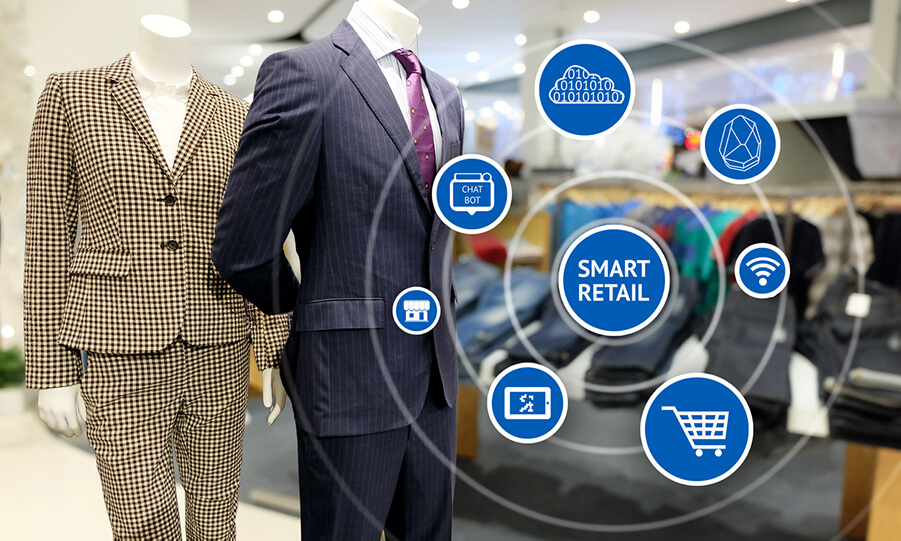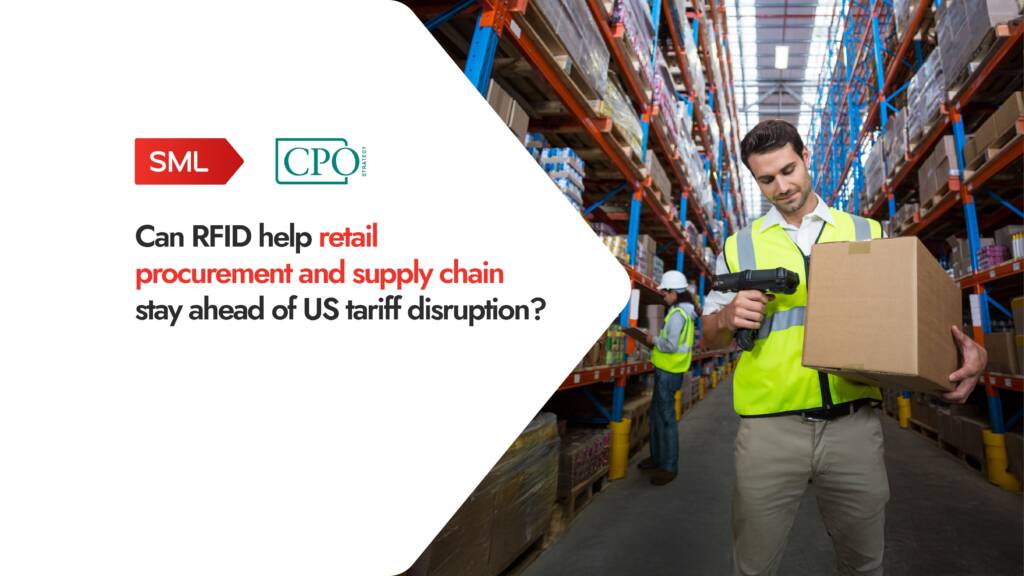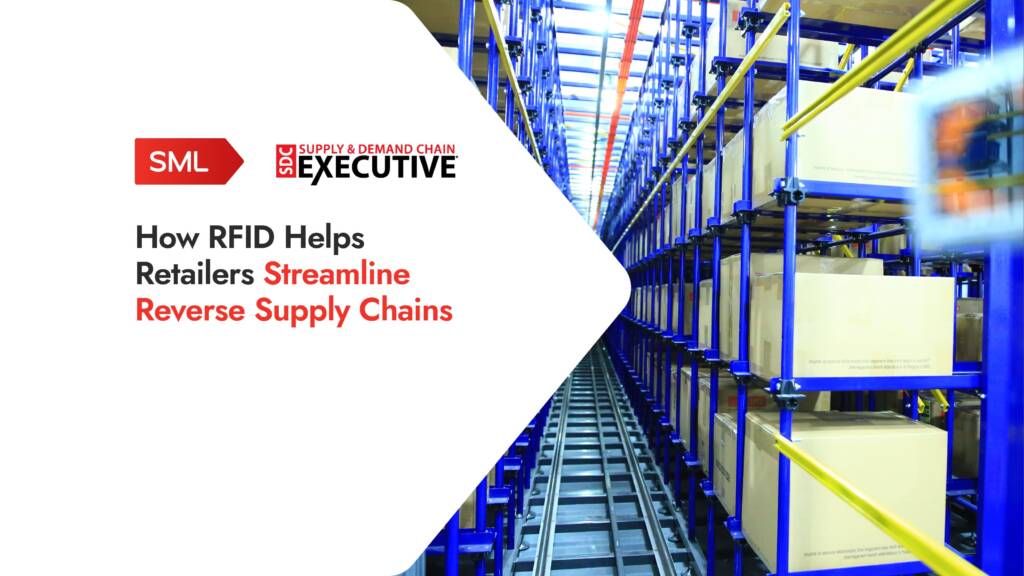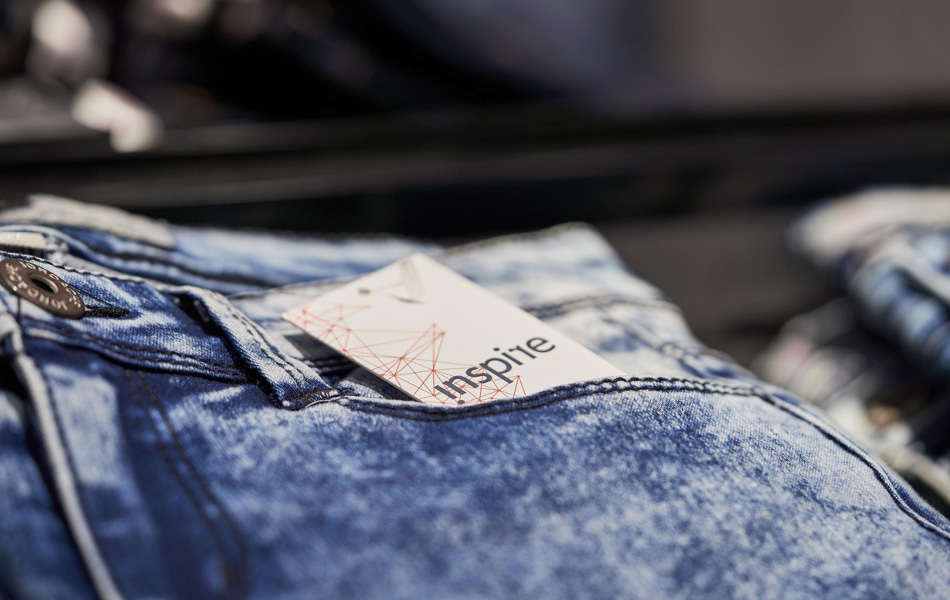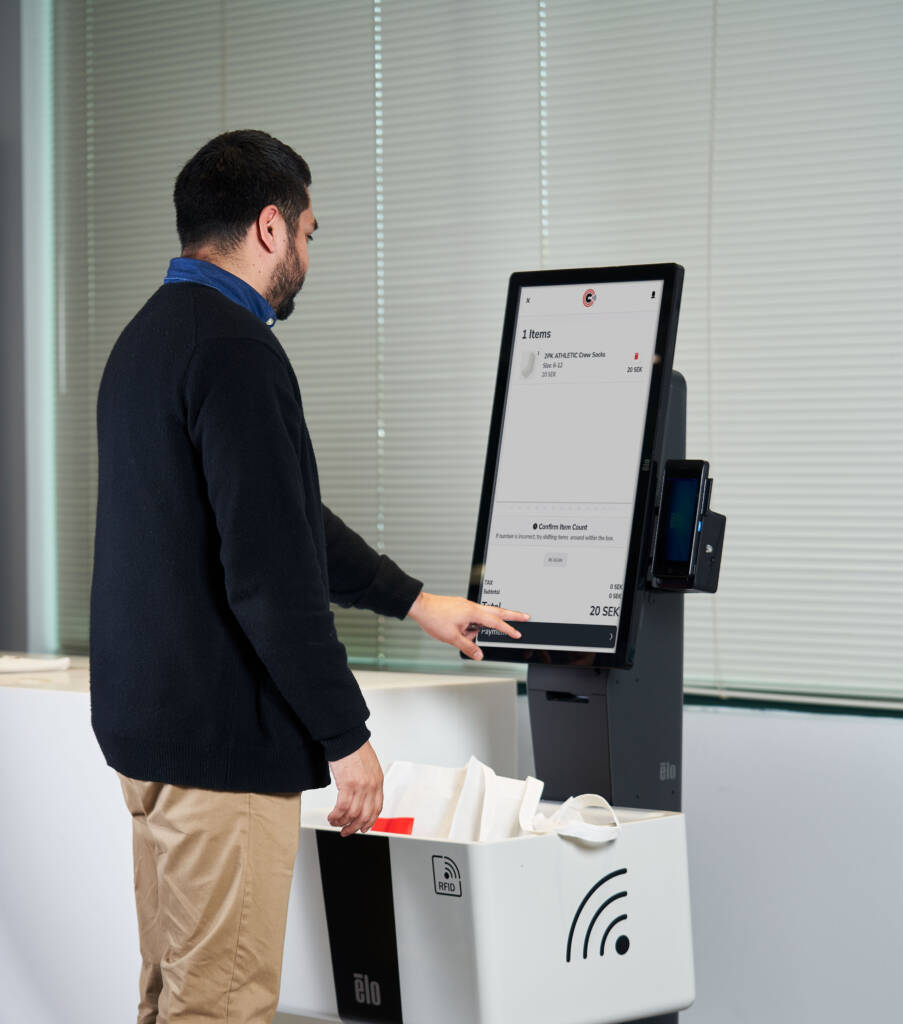Empowering Retail Supply Chains with RFID
The deployment of RFID technology within retail supply chains brings forth numerous benefits:
Enhanced Inventory Management: RFID tags enable accurate, real-time tracking of inventory, significantly reducing out-of-stock scenarios and overstocking.
Improved Supply Chain Visibility: With RFID, retailers gain unparalleled insights into the journey of products from warehouse to store shelf, facilitating better decision-making.
Reduction in Shrinkage and Losses: By deterring theft and minimizing errors in inventory counts, RFID helps in safeguarding assets and boosting profitability.
As a result, the retail sector as a whole is undergoing a dramatic shift to keep up with these changing behaviours. In particular, the fashion industry – a market that has been called out several times on its environmental impact – is currently going through a significant transformation in its bid to be more sustainable.
Leading European retailer, H&M, previously launched its latest ‘Conscious’ collection in a bid to make its clothing more sustainable by using up to 50% recycled materials. As well, Zara announced that all of its clothing and accessories would be made from 100% sustainable fabrics before 2025, marking a big move for the industry.
In addition to some brands and retailers committing to using environmentally sourced materials, they are exploring other ways in which sustainable processes can be rolled out across their entire supply chains. For example, Walmart, IKEA and H&M have taken steps in which they can positively impact their supply chains to move towards more sustainable retailing. This is being done mostly by leading collaboration across their supply chains to reduce waste, increase resource productivity and optimize material usage.
Technology can also play an essential role in making a retailer’s supply chain more efficient and sustainable. With most apparel retailers averaging around 70% item-level inventory accuracy, they are often in the dark on quantity and location of items throughout their supply chain. By utilizing item-level RFID for inventory management, retailers can reduce their environmental impact by decreasing manufacturing, shipping and stock levels.
Because item-level RFID can deliver stock accuracy of up to 98%, retailers can make much more informed decisions around inventory levels. If specific items aren’t selling as much, they can make the call to produce less at the manufacturing level, which also reduces material resources and transport emissions. By utilizing item-level RFID for their inventory solutions, businesses are ensuring more stock can be delivered to consumers, therefore reducing what is sent to landfill.
An example: while increasing sales using item-level RFID solutions, one of SML RFID’s customers reduced annual garment volume by over 20,000,000 items. This equates to around 500 shipping containers full of garments that did not have to be manufactured or shipped. That is 1/20th of a transport ship saved for just a single retailer – imagine if 20 retailers used RFID technology. That would be one transport ship full of garments that would not have to cross the pacific and over 400,000,000 items that would not have to be manufactured – a significant environmental impact.
As retailers and brand owners continue to look for ways to be more environmentally balanced, the key is for the industry to share the same mindset and work together to achieve a retail ecosystem that not only thrives but is sustainable. Therefore, retailers will continue working with partners and suppliers who share the same ethos and vision for a sustainable future. It is also likely that Retailers will focus on how to reduce the carbon footprint across their entire ecosystem. This can be achieved through effective item-level inventory management.
Sustainability continues to be a prominent subject, not just for the fashion sector but for many industries worldwide. As conversations continue to move on, retailers will shift their processes and approaches to cater to their eco-conscious customers.
RFID technology stands at the forefront of revolutionizing retail supply chains, offering a blend of efficiency, transparency, and accuracy previously unattainable. As retailers increasingly adopt this technology, the promise of a more streamlined, customer-focused, and resilient supply chain becomes a reality. The journey towards a future-proof supply chain is not without its hurdles, but with RFID, the retail industry is well-equipped to navigate the challenges of the modern marketplace.
To find out more about how item-level RFID can drive sustainability throughout the supply chain, download our Clarity® Supply Chain brochure today.


